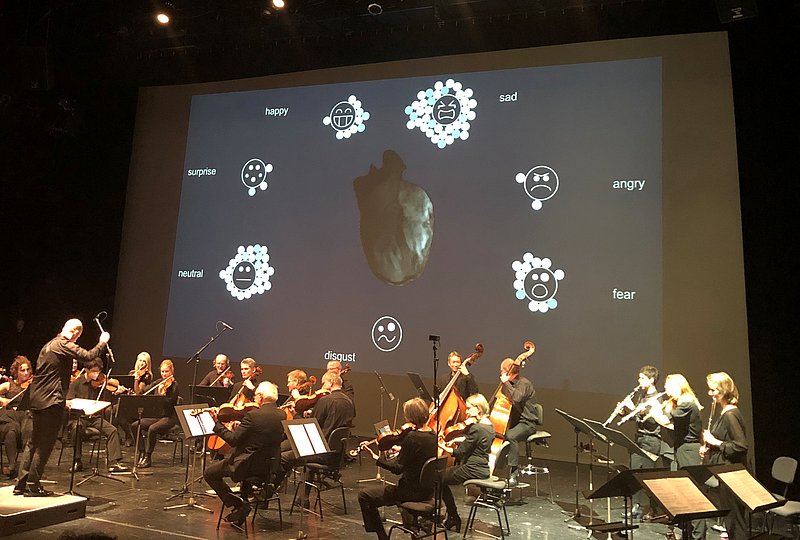This has never been done before, it is a milestone in the history of music and theatre, as Marcus Lobbes also summarised matter-of-factly in the panel discussion, "even if we will only be able to gauge the concrete consequences in 20 years' time": Martin Hennecke's data science composition not only combines the AI expertise of the German Aerospace Centre and the imaging process of the world's most powerful MRI machine of the Max Delbrück Centre for Molecular Medicine - it also creates a new kind of data-driven real-time composing, which, despite all the technology, above all creates a unique theatre evening with outstanding, moving music that comes from the heart and goes to the heart in both the original and the medical sense, music that can never be heard again like this - and which visibly moved the audience in the sold-out Alte Feuerwache of the Staatstheater Saarbrücken.
Martin Hennecke redefines the role of the composer: he is no longer the original genius who creates works, but an artistic visionary who defines the parameters according to which many different teams of experts work together to develop unpredictable sound from live-generated data - and perhaps the greatest achievement is then that so different and yet so touching music emerges from each run.
"We've known for a long time that a great future is possible with our research," Andreas Kosmider from the Helmholtz Information & Data Sciences Academy (HIDA) explained the idea behind the collaboration with the Academy for Theatre and Digitality that has been building up for years, "but it's not enough to do research, we also have to turn research into narratives." In cooperation between the HIDA and the Academy for Theatre and Digitality (ATD), therefore, at the ATD in Dortmund, at the German Centre
for Aerospace (DLR) and at the Max Delbrück Center for Molecular Medicine (MDC), the research grant was realised, the results of which could now be performed by the Saarland State Orchestra at the Saarbrücken State Theatre thanks to the federal funding "Excellent Orchestra Landscape".
In concrete terms, this means that AI researchers from the German Institute of Aeronautics and Astronautics create an orchestral score in real time by clustering live collected biomedical data from the audience, which is played by the experimenting orchestra directly from the tablet, and the Max Delbrück Center for Molecular Medicine "boosts music into the future with magnetic resonance imaging", as Thoralf Niendorf from the MDC described it - and at the same time spoke of new medical insights he had gained that evening. And while the researchers at the DLF, on the one hand, were faced with the question of which existing techniques they could use for art in such a way that the biomedically acquired objective and subjective data could be intelligently assigned to the notation of music, the insights gained from the evening flow directly back into their research and will find expression in doctoral theses - for the researchers, too, it was a rare opportunity to carry out the recording of heart rate and emotion tracking not only on individual test subjects, but on a large number of people simultaneously.


